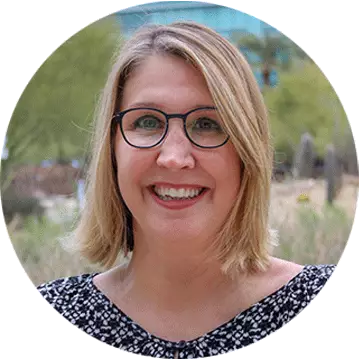Why you just might be eligible for a college scholarship (even if you don’t know it)

Written by Cassidy Horton

Reviewed by Chris Conway, Director of Financial Education Initiatives and Repayment Management

If you didn’t have top grades or excel in sports, you might think getting a college scholarship is out of the question. But don’t count yourself out just yet. You don’t need D1 athleticism, prodigy-level talent or to have made the dean’s list in high school to earn a scholarship.
You’re likely eligible for a scholarship just for being you. Here’s why.
What’s a scholarship?
A scholarship is a form of financial aid that students earn for their academic achievements, merit or talent. Scholarship money falls into the category of “gift aid,” which is similar to grants because you don’t have to repay it.
You can find scholarship opportunities in a variety of places, including:
- Religious organizations
- Community groups
- The company you or your parents work for
- Nonprofit organizations
- Social, cultural or professional groups
- Schools and universities
- Major businesses
This abundance is important, because every dollar you receive in free scholarships lets you borrow less and may reduce your future student loan payment. Christine Conway, director of financial education initiatives at University of Phoenix, explains that, at current interest rates, every $1,000 received in student loans could result in a monthly payment of $10 to $11 under standard repayment terms.
Common myths about scholarships
The U.S. Department of Education awards an estimated $46 billion in scholarship money annually, and private sources award an additional $3.3 billion. There’s no shortage of scholarship money available for college students, in other words.
But if you think you don’t qualify for a scholarship, you’re not alone. A recent Sallie Mae/Ipsos study found that 45% of families think scholarships are available only for exceptional students.
However, you’re also not necessarily right. Billions of dollars in scholarship and grant money go unclaimed every year.
Conway has heard all types of scholarship myths from students, such as:
- “Only high school students get scholarships.”
- “There are no scholarships for someone like me.”
- “I need a perfect GPA to qualify.”
These statements are simply not true. According to Conway, many active scholarships are out there right now for students based on gender, age, race and ethnicity. There are also some for specific degree programs, as well as hobbies and interests. Many don’t require excellent grades, a high GPA or even an essay.
Why you might be eligible for a scholarship
Several factors outside of academics could make you eligible for a scholarship. Some might also have GPA or test score requirements, but many scholarships are geared toward people who haven’t qualified for what some would consider traditional college scholarships.
Some scholarships even get oddly specific. For example, a glance at CareerOneStop.org, a U.S. Department of Labor-sponsored scholarship search tool, reveals scholarships for:
- Students of Mexican heritage
- Water ski and wake sports
- Writers who specialize in the outdoors
- Women returning to college after four years
Look for scholarships that fit your unique interests and qualifications. These can include (but aren’t limited to) any of the following factors.
Your background
Many scholarships for college offer opportunities for people from underprivileged backgrounds and underrepresented communities, such as:
- Military families
- Black, Indigenous and people of color
- Immigrant families
- LGBTQIA+
- Adoptees
People from those same communities often run and fund such award programs.
Major or field of study
If you’re sure about your future profession and have an established major, you could be eligible for scholarships supporting students in your field of study. These opportunities may require you to stay in that major for a certain amount of time or graduate in that major.
You may also have to work in your chosen field for a few years. Usually, these scholarships require you to maintain a minimum GPA to keep the funding. If not, you could lose it.
Pure luck
There are scholarships out there that don’t require anything but an application and possibly another requirement or two. They’re more like contests in that they select a winner at random. You’ll probably have a lot of competition for these.
Financial need
These scholarships use data about your family’s finances to determine what kind of an award you qualify for. Typically, that means you’ll need a completed FAFSA® form (Free Application for Federal Student Aid).
Scholarship requirements
Scholarship requirements vary, but many have the same basic stipulations. This makes it simpler to batch out your scholarship applications. Here’s what you’ll want to ensure you have before applying:
- Completed FAFSA form
- SAT/ACT score
- Any GPA requirements
- An essay
- Letters of recommendation
- Student resumé
Having all these things readily accessible streamlines your scholarship application process, so it’s easier to apply for everything you’re eligible for.
The only part you’ll want to adjust along the way is your essay. Conway suggests repurposing essays when possible. “Essays do take time,” she explains, “but there are things you can do to make the best use of your time. Use a strong essay you’ve already written, and tweak it to fit the new essay requirements.”
Some scholarships for college don’t require an essay. So, if you want to avoid this requirement, search specifically for no-essay scholarships.
Scholarship application tips
You can improve your chances of getting a scholarship by following these application tips.
- Follow instructions: It’s important to read all the instructions and follow them to the letter. Not following instructions (like exceeding the essay word count) may disqualify you even if you meet the other stipulations.
- Start early: Competition is tough. The longer you wait to start your applications, the more applicants you’ll compete against. According to the Sallie Mae/Ipsos study, 48% of students apply for scholarships year-round to give themselves the best chances of success.
- Apply for multiple scholarships: A good way to improve your odds is to treat it like a numbers game. Apply to as many scholarships as you qualify for. Make the process easier by developing essay templates that you customize for each application.
- Don’t give up: It’s easy to get discouraged when applying for college scholarships, but keep going!
Remember, smaller award amounts add up, and any type of gift aid is good aid. It may pay for books, cover a portion of food or housing, or take care of course fees. Either way, it’s money that you don’t have to pay interest on and that doesn’t come out of your pocket. And that’s a win no matter how you look at it.

ABOUT THE AUTHOR
Cassidy Horton is an academic advisor turned finance writer who’s passionate about helping people find financial freedom. With an MBA and a bachelor’s in public relations, she’s had the pleasure of working with top finance brands like Forbes Advisor and PayPal. She’s also the founder of Money Hungry Freelancers, a platform dedicated to helping freelancers ditch their financial stress. In her spare time, you can find Horton hiking in the Pacific Northwest and cuddling her two cats.

ABOUT THE REVIEWER
As Director of Financial Education Initiatives and Repayment Management, Chris Conway works with departments across the University to provide resources that allow students to make more informed financial decisions. She is also an adjunct faculty member for the Everyday Finance and Economics course at the University, and she chairs the National Council of Higher Education Resources College Access and Success Committee. Conway is committed to helping college students make the right financial decisions that prevent future collection activity.
This article has been vetted by University of Phoenix's editorial advisory committee.
Read more about our editorial process.
Read more articles like this:


